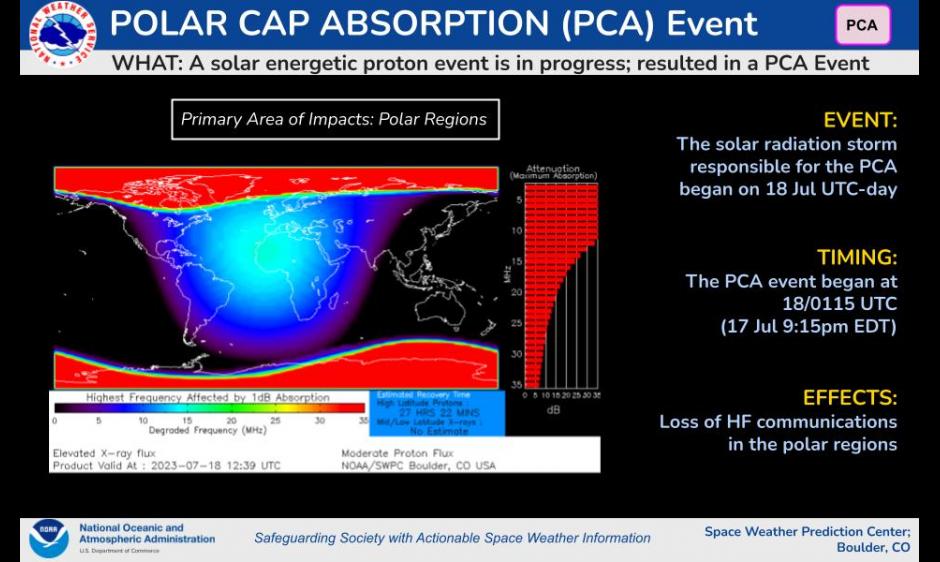
A Polar Cap Absorption (PCA) event has been in progress since the evening of Monday, 17 July, 2023 EDT. The event began at approximately at 9:15pm EDT (18/0115 UTC) and was initiated by the arrival of energetic protons at the 10 MeV (megaelectron volts) level at Earth and the onset of a S1 (Minor Solar Radiation Storm) event that began at 18/0115 UTC. The S1 event was triggered by a coronal mass ejection (CME) associated with a M5 flare (R2; Moderate HF Radio Blackout) from sunspot group Region 3363 that accelerated particles towards Earth. PCA events can prevent the ability to communicate via HF radio propagation around the polar regions and can last for hours to days. This event is likely to continue throughout 18 July and perhaps into 19 July. Continue to follow the latest information and forecasts by visiting our webpage for updates.